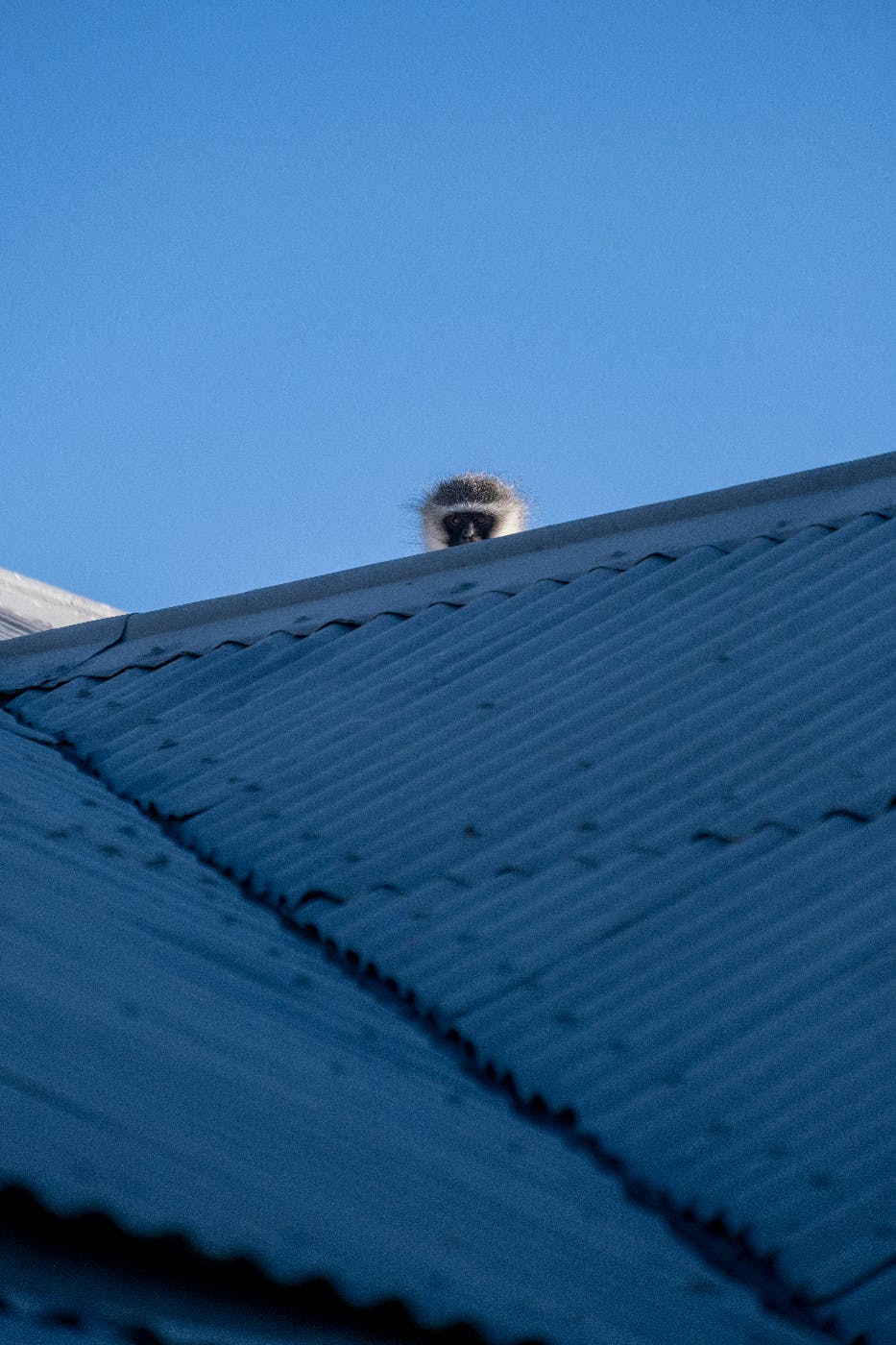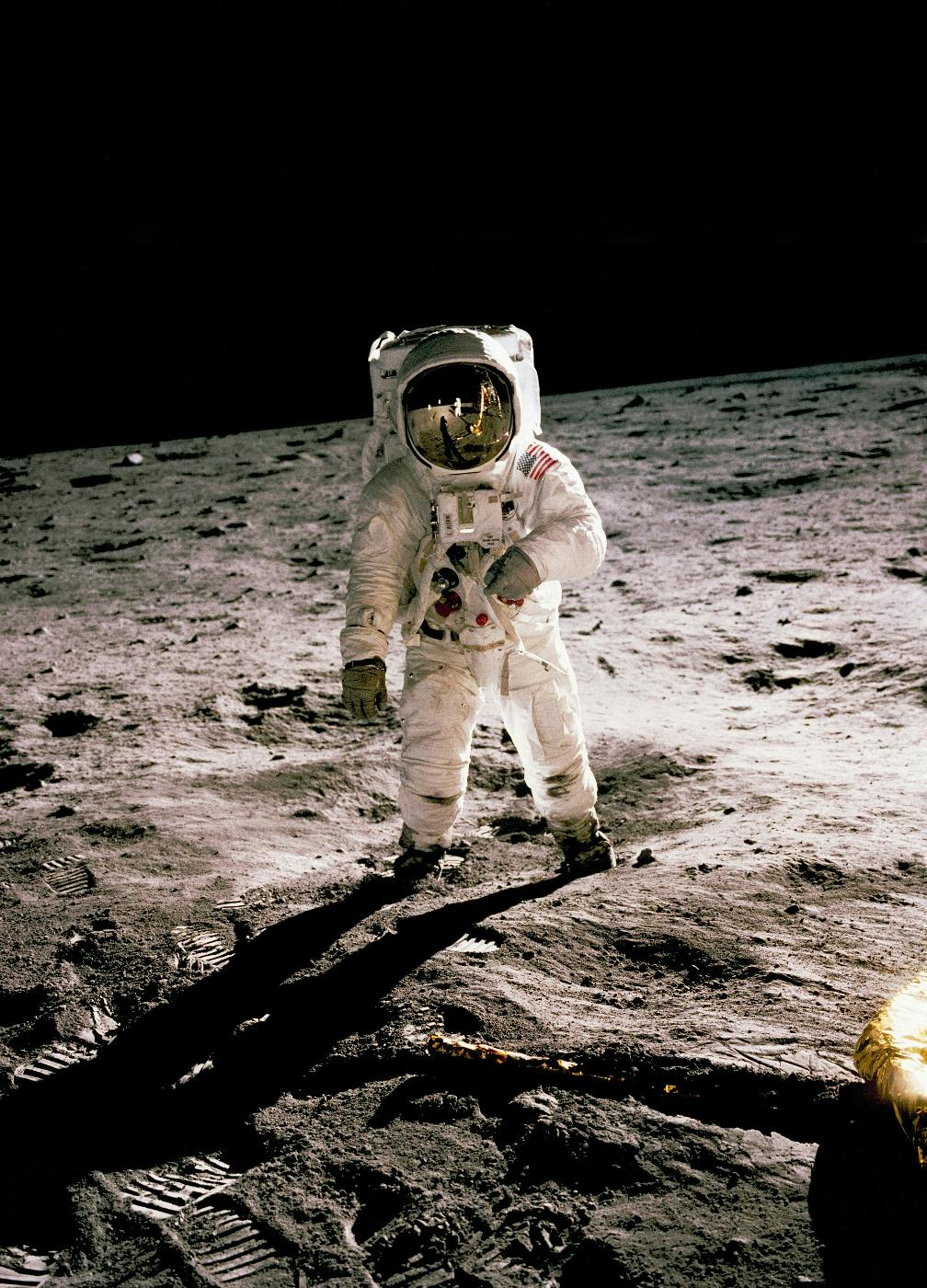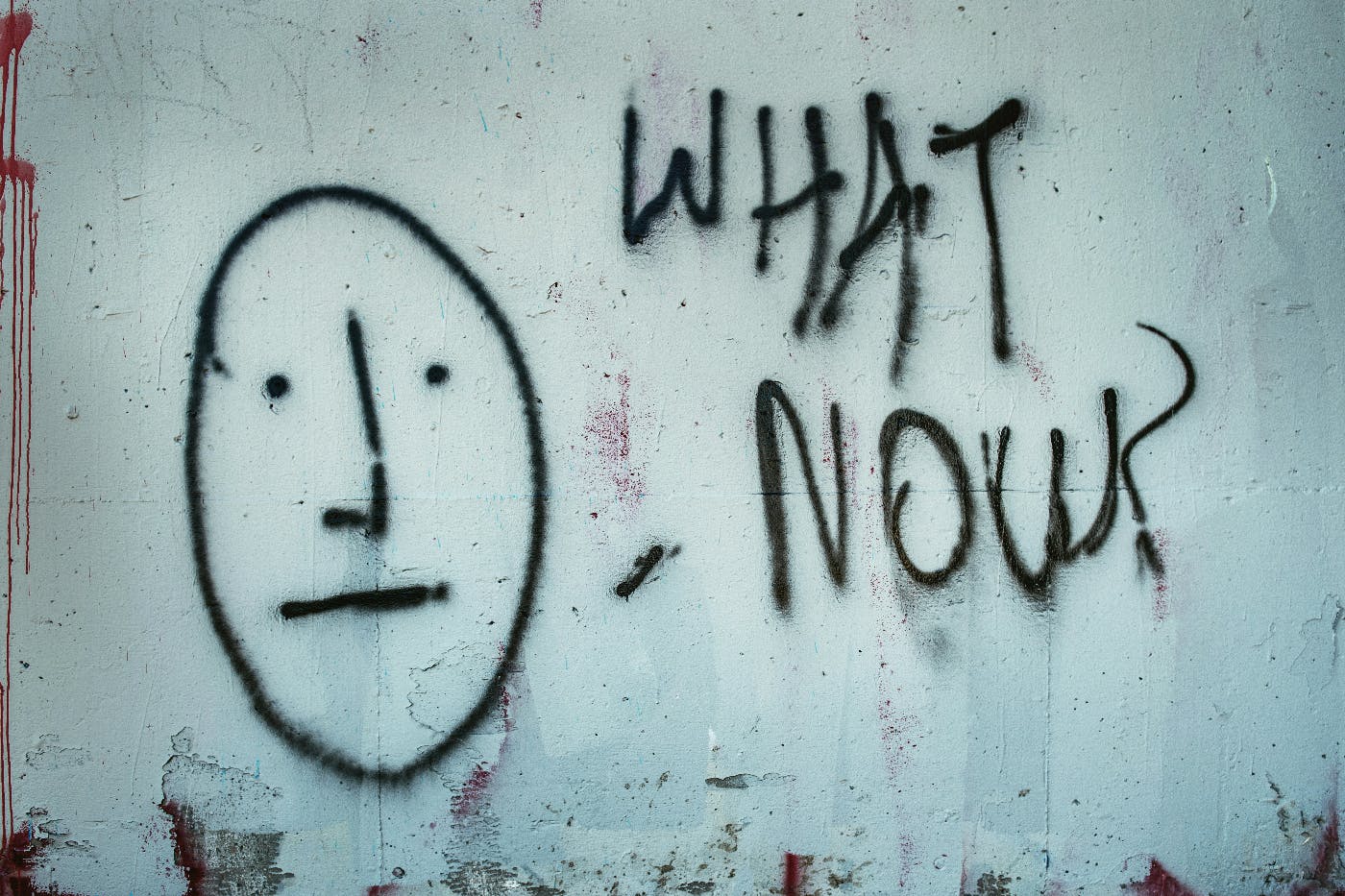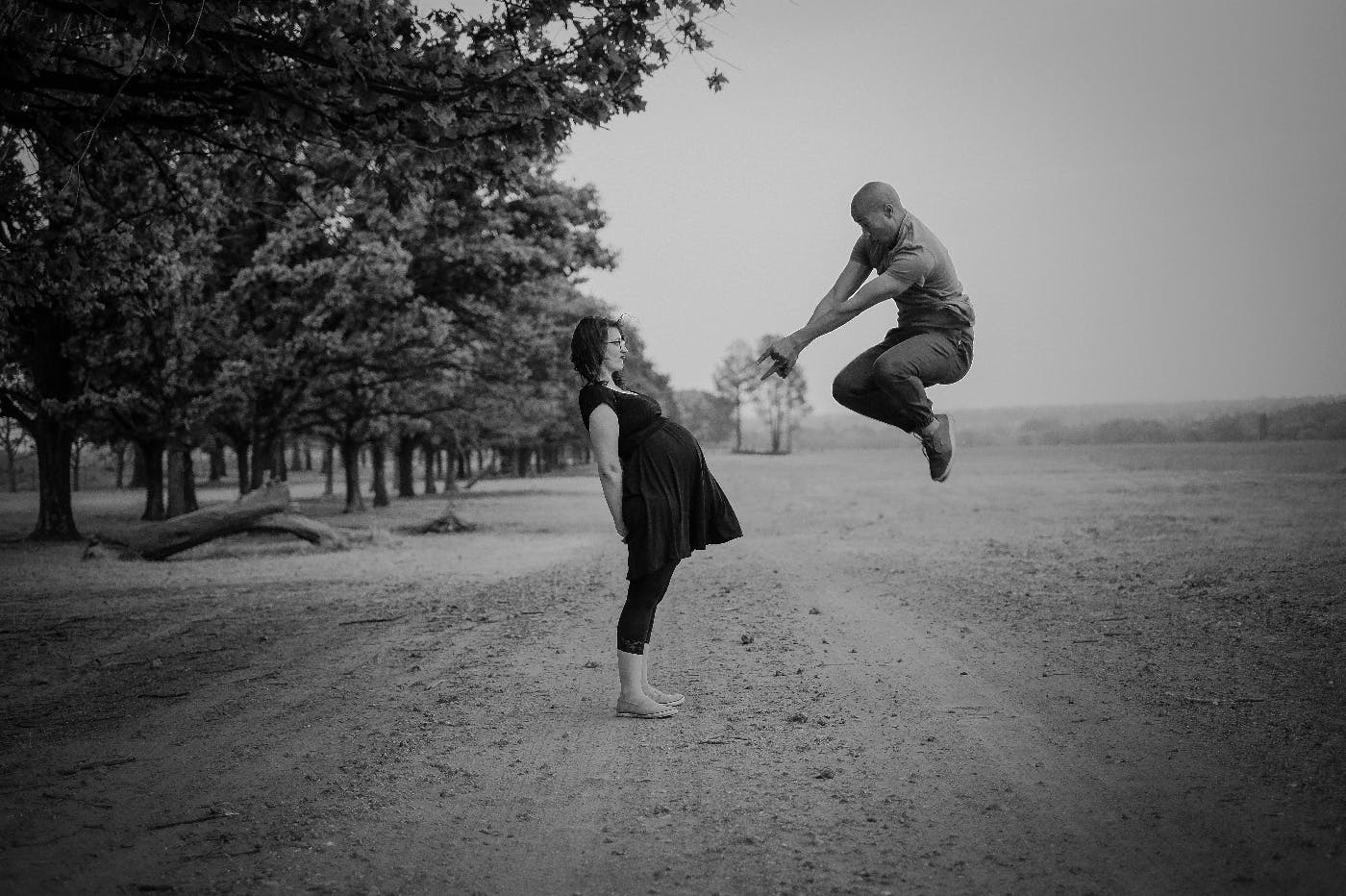
At the core of every dad joke is a pun, wordplay, or a clever twist that feels more like a gentle nudge than an actual comedic punch. The joke is rarely original or surprising—in fact, dad jokes thrive on being formulaic and predictable.

Then someone got on a stage and said, “Take my wife … please!” the room burst out laughing. It was like the moon landing: Someone used a bit of timing and a bit of misdirection, and that joke was born, raised, and basically outlived its time.
Then Lenny Bruce got on stage and used all sorts of “bad” words, got arrested for obscenity and thrown in jail, and yet, nightly, he’d come on stage, look at the line of cops at the back of the house, walk to the edge of the line and wait til his routine was done to cross the line and end up in jail again.
Then, one faithful day, someone’s dad said, “Why did the bicycle fall over? It was two tired.” His kids groaned, and then they went to school and shared that joke with friends just to show how lame their old man was. Those kids told their friends and so on, and, bing, bang, boom, we have the dad joke phenomenon.
Of course, that is a drastic simplification of the comedy process and how the dad joke slipped into our humor lexicon, but it gets the point across. The point? Once upon a time, there was no such thing as a dad joke; now, they are everywhere. So, if that’s the case, I think they need a little examination. How did we get here, why, and what’s the next step? Is there gold to be mined in the dad joke? Is the dad a joke a viable tool for marketing and branding? How come there are no mom jokes? Mom’s can be funny, too, right?
These are all questions I am pondering today, so I will share them all with you in today’s blog about dad jokes. Sound good? Okay, off we go. And let’s start with this simple question …
What is a Dad Joke?
The Anatomy of a Dad Joke
At the core of every dad joke is a pun, wordplay, or a clever twist that feels more like a gentle nudge than an actual comedic punch. The joke is rarely original or surprising—in fact, dad jokes thrive on being formulaic and predictable. For example, classic dad jokes often rely on simple setups and overly literal punchlines:
"Why don't skeletons fight each other? They don’t have the guts."
"What’s brown and sticky? A stick."
"I only know 25 letters of the alphabet. I don’t know Y."
These jokes follow a pattern: they appear straightforward, but the punchline plays with language in a way that’s meant to be clever without being offensive or controversial. The humor stems from the mild absurdity or cleverness of the wordplay itself.
There’s also something nostalgic about dad jokes. They harken back to a time when humor didn’t need to be biting or ironic to be funny. This might be one of the reasons why dad jokes have persisted for so long and have even seen a resurgence in the digital age. In many ways, they are an antidote to the sarcasm and cynicism that dominate modern comedy, offering a brief moment of levity instead.
Communism is just one big telephone company.Quote:
Lenny Bruce
Why Are Dad Jokes So Persistent?
Dad jokes have staying power because they are about more than just the punchline. In fact, the groan or sigh they elicit is often as much a part of the joke as the wordplay itself. The ritual of telling a dad joke, knowing it will likely provoke an eye roll, is a performance. It’s a way to bond with others through shared discomfort, with the joke’s very cheesiness making it endearing.
The performance element is important, particularly in the context of a family or social setting. Dad jokes are often told in informal, intimate environments where the joke-teller isn’t looking for a big laugh but rather a shared moment. In a sense, the dad joke isn’t about impressing the audience but creating a small, relatable moment that everyone understands. That’s why these jokes are commonly shared at the dinner table or in everyday conversations.
The persistence of dad jokes also taps into the figure of the father as the lovable, slightly embarrassing character. Part of the appeal of dad jokes is that they play into the stereotype of the dad who tries hard to be funny but often misses the mark. This well-meaning, slightly out-of-touch persona makes dad jokes endearing even when they fail to land.
Dad Jokes and the Nature of Humor
The popularity of dad jokes says something interesting about our relationship with humor as a culture. In many ways, humor has evolved to become sharper, more critical, and sometimes more cynical, reflecting the complexities of modern life. But dad jokes stand in stark contrast to this trend. They are intentionally simplistic, often steering away from anything that could be interpreted as mean-spirited or edgy.
In a world where humor is sometimes used to provoke or critique, dad jokes are refreshingly light-hearted. They aren’t meant to challenge or push boundaries—they are there to comfort, to offer a chuckle or groan in equal measure. Their appeal may lie in this very innocence, offering a respite from the more abrasive or complex forms of comedy that dominate today’s media landscape.
Moreover, the universality of dad jokes is part of what makes them so relatable. Unlike some forms of humor that rely on specific cultural knowledge, niche references, or controversial topics, dad jokes are straightforward and accessible to almost everyone. They don’t require a deep understanding of current events, societal trends, or subcultures to appreciate. They transcend generational and cultural divides because the humor is rooted in simple wordplay, which is something that anyone, anywhere, can understand.
The Digital Age and the Rise of Dad Jokes
Dad jokes have found a new home on social media, where their groan-worthy charm has been embraced and even elevated to an art form. Platforms like Twitter, Instagram, and TikTok are filled with dad joke memes and videos, often playing on the irony of how “bad” the jokes are. This self-awareness is key—dad jokes are now enjoyed not just for the humor itself but for the ritual of cringing together in response to them.
The rise of dad jokes in digital culture also reflects a broader trend: the appreciation of so-called "cringe" humor. In a landscape where irony and detachment reign supreme, dad jokes fit perfectly. Their predictability and cheesiness make them an easy target for playful mockery, but they’re embraced because of that very fact. It’s not uncommon to see a dad joke shared with an “I can’t believe I’m laughing at this” caption or to watch a video of someone telling a dad joke while their audience groans dramatically. The humor comes from the joke and the shared experience of enduring it.
In short, dad jokes endure because they aren’t just jokes—they’re cultural moments, shorthand for the awkward but endearing humor we all recognize. Their persistence on social media and beyond shows how deeply embedded they are in our collective consciousness, making them fascinating reflections of our past and present relationship with humor.

Sex and obscenity are not synonymous.Quote:
Lenny Bruce
The History and Evolution of Dad Jokes
Though it’s hard to pin down the exact moment when dad jokes became part of the collective lexicon, they seem to have evolved out of the general tradition of puns and playful, childlike humor. While corny jokes have been around for centuries, the specific label "dad joke" likely emerged in the latter part of the 20th century as family dynamics and parenting roles became a point of humor themselves.
The concept of the dad joke likely grew out of sitcoms and family-oriented media from the '70s and '80s, where bumbling, well-meaning father figures were often depicted delivering harmless jokes. Fathers in these narratives were sources of both authority and comic relief, and their jokes became a shorthand for family warmth and occasional embarrassment.
In the early 2000s, as social media platforms became a part of everyday life, dad jokes took on a new life of their own. Memes and short-form content like tweets began to embrace and celebrate the cheesiness of dad jokes, often under the guise of irony or self-deprecation. This online spread helped them evolve from something groan-inducing to something universally recognized.
What Dad Jokes Say About Our Relationship to Comedy
Dad jokes tap into a broader cultural love for innocent, predictable, and lighthearted humor. In a world where so much comedy hinges on satire, sarcasm, or edgy content, dad jokes offer a safe, nostalgic escape. They’re simple, universal, and accessible to all ages.
Part of their charm lies in their predictability—dad jokes don’t aim to surprise or challenge; instead, they rely on well-worn patterns of wordplay. The humor comes not from the joke’s content but from the delivery and shared cultural understanding of the joke’s formula.
The persistence of dad jokes, especially on platforms like TikTok or Instagram, points to how comedy can sometimes be as much about connection as it is about laughter. Sharing a dad joke is often a social bonding activity—its cringiness is precisely what makes it funny when shared in the right context.
Why Dad Jokes Have Entered the Collective Consciousness
Despite protests or groans, dad jokes have become an accepted part of mainstream humor because they serve as a palate cleanser to the more cynical or intense content that often floods media spaces. Their simplicity makes them sharable, and their innocence makes them inoffensive, which means they are perfect for a wide range of audiences. In fact, dad jokes often thrive on the fact that they are terrible—so bad, they’re good.
Social media has also accelerated their rise to prominence. Meme culture tends to elevate repetitive, formulaic humor, and dad jokes perfectly fit this framework. Moreover, the performative cringe surrounding dad jokes has become part of their appeal. You’re supposed to groan at them, and that groan has become part of the shared experience. It’s not just about the joke—it’s about the shared discomfort and connection.
Where Could Dad Jokes Lead Us?
Dad jokes seem to be a timeless form of humor, and their longevity suggests they’re not going away anytime soon. As irony becomes an increasingly dominant part of internet culture, dad jokes will likely continue to enjoy a long shelf life. They tap into an evergreen aspect of humor: the pleasure of wordplay and the awkward charm of predictable humor.
We may see dad jokes continue to evolve with new variations, but at their core, they serve a purpose: a comforting, safe type of humor that transcends generations. As our relationship with humor continues to change—especially as comedy becomes more fragmented by niche internet communities—dad jokes may remain one of the few humor forms that can unite different groups.
Dad Jokes in Marketing and Branding
In addition, dad jokes evoke a sense of warmth and familiarity, tapping into many people's positive associations with father figures. This is particularly valuable for brands that want to be seen as trustworthy and dependable, especially in industries like food, insurance, or home goods, where building consumer trust is paramount. By using dad jokes, companies can position themselves as relatable and personable, qualities that resonate well with consumers who are tired of impersonal, corporate-sounding marketing messages.
Building Brand Personality
A well-placed dad joke can humanize a brand, making it feel more relatable and approachable. By embracing the lighthearted, cheesy humor of dad jokes, companies signal to their audience that they don’t take themselves too seriously, which can be refreshing in a marketplace often dominated by polished, serious branding. This playful tone can differentiate a brand from its competitors, allowing it to stand out in a crowded field.
For example, fast-food chains like Wendy’s have famously integrated humor into their social media strategies, often using dad-joke-style puns or lighthearted humor to engage with their audience. This strategy entertains followers and encourages interaction, as customers often respond with their own jokes, puns, or groans, creating a two-way conversation that enhances engagement.
Dad jokes also work for brands that want to create a family-friendly atmosphere. Because they are non-offensive and easy to understand, dad jokes are accessible to audiences of all ages. This makes them an ideal fit for brands targeting families, such as food companies, theme parks, or retailers. By using dad jokes, these companies can reinforce their commitment to wholesome, inclusive fun while keeping their messaging light and entertaining.

The Viral Nature of Dad Jokes
One key reason dad jokes are so effective in marketing is their inherent “shareability.” In the age of social media, content that can be easily shared and enjoyed by a wide audience is invaluable to a brand’s visibility. Dad jokes, with their short, punchy format and universal appeal, are perfect for this. Whether posted as a tweet, a meme, or part of a video, dad jokes are highly digestible and often prompt users to share, comment, or engage in some way.
Brands that incorporate dad jokes into their social media strategies can create viral content with relative ease. This is especially true when the joke taps into current events or trending topics, adding a layer of relevance that encourages users to interact. Dad jokes fit seamlessly into the kind of short, humorous posts that perform well on platforms like Twitter, TikTok, or Instagram. For instance, a tech company could post something like: “Why did the computer keep freezing? It left its Windows open.” While simple, this kind of joke will likely be shared and appreciated across a broad audience, including people outside the brand’s typical customer base.
Incorporating dad jokes into marketing also gives companies a chance to participate in meme culture, which can significantly boost brand visibility. When done well, the use of dad jokes can make a brand seem more approachable, witty, and in tune with the playful, ironic nature of internet humor.
Dad jokes are often perceived as "old-fashioned" or timeless, which allows brands to tap into this sense of the past. By incorporating dad jokes into their campaigns, companies can evoke feelings of warmth, trust, and family values. For instance, brands selling products or services that appeal to families or older generations can use dad jokes to create a sense of continuity between the past and present, suggesting that their products are as reliable as the humor passed down through generations.
For example, an insurance company might use a dad joke in its marketing to both lighten the tone of its messaging and convey reliability: “Why did the car break up with its insurance? It found someone more reliable!” While humorous, the underlying message reinforces the idea of dependability, which is a crucial value for insurance companies.
The Role of Dad Jokes in Content Marketing
Content marketing relies on engagement, and dad jokes are an excellent way to capture attention in a light and entertaining manner. Blogs, social media posts, and email newsletters that incorporate humor tend to perform better because they offer more than just information—they offer a reason to smile or laugh. In content marketing, dad jokes can be a tool for making dry or technical subjects more approachable.
For instance, a tech company could use a dad joke to explain a complex concept in a fun way. Consider a blog post about data security that opens with: “Why did the computer go to the doctor? It had a virus!” The joke serves as an icebreaker and makes the topic feel less intimidating, making readers more inclined to engage with the content.
Similarly, dad jokes work well in email marketing, where grabbing the recipient’s attention within the first few seconds is crucial. Adding a playful subject line like “Feeling stressed? Let’s taco ’bout it” (for a taco-related promotion) can increase open rates and create a more positive impression of the brand.
In marketing, dad jokes are more than just a source of amusement—they can be a strategic tool. As long as brands understand the importance of context, timing, and delivery, dad jokes can help humanize corporate entities and create a sense of warmth and relatability.
What is truth today may be a damn lie next week.Quote:
Lenny Bruce
Summing Up
So, don't roll your eyes too hard the next time someone tells you a dad joke. It’s all part of the plan.
At ThoughtLab, we love a good dad joke because it reflects the power of culture and shared experiences. Just as dad jokes bring people together with their simplicity and humor, we leverage cultural insights and worldviews to create authentic, relatable branding and marketing strategies. By tapping into universal moments like these, we help brands connect with their audiences in a meaningful and memorable way.

